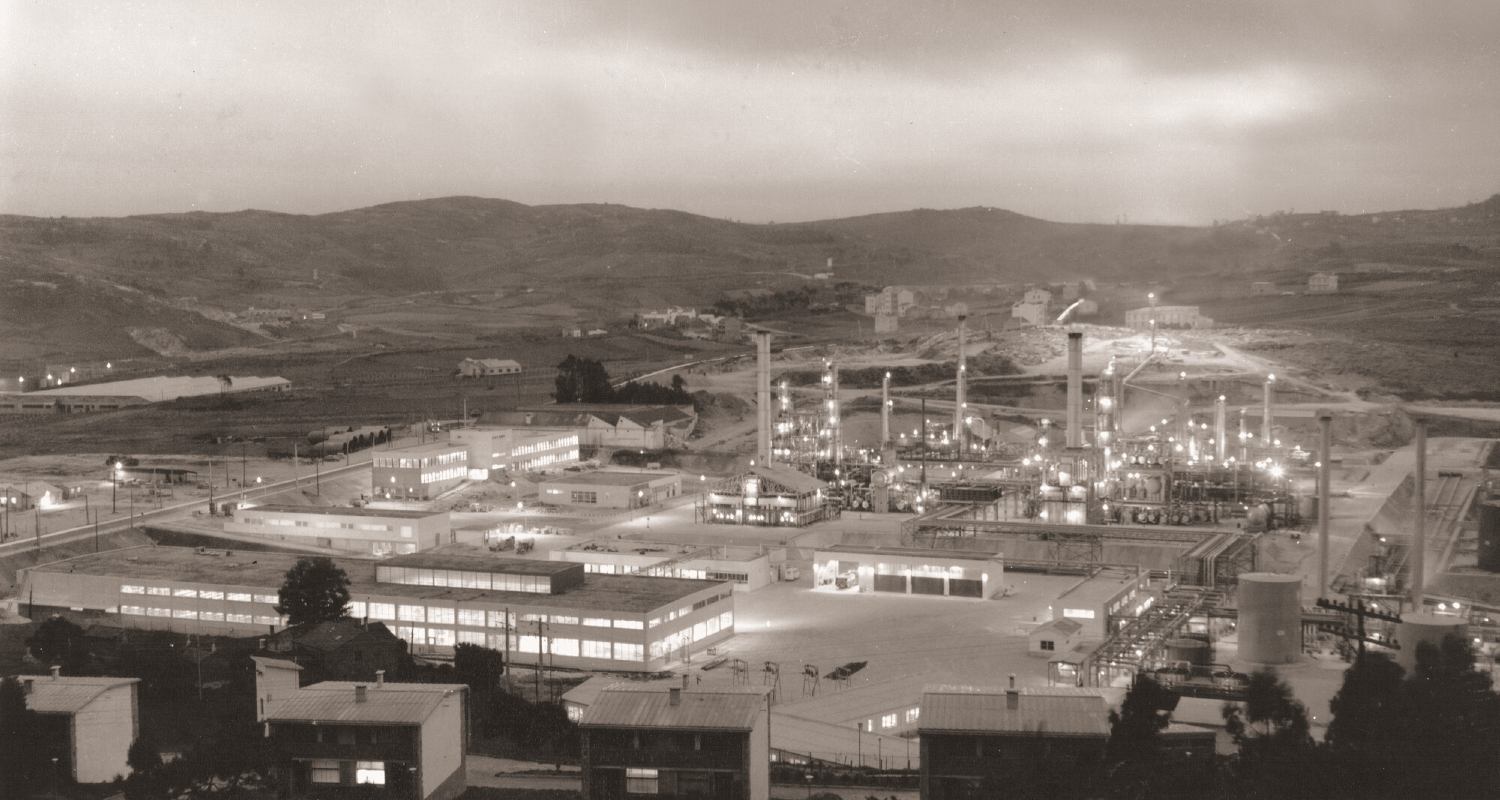
Our history
A history of constant evolution
We've been energetically supporting people for nearly a hundred years, and we continue adapting to market challenges and evolving with society.
A run through of everyone's history
A run through of everyone's history
A run through of everyone's history
Discover our history and learn how we've evolved and transformed over nearly 100 years. Discover how every step we've taken and every decision we've made has prepared us to face the energy challenges of tomorrow.

Our origins
(1927-1984)
Our origins
(1927-1984)
The foundations for Spain’s advances in energy.

The early years
(1986-1997)
The early years
(1986-1997)
Birth of the Repsol group and privatization of the company.

Internationalization and innovation (1999-2012)
Internationalization and innovation (1999-2012)
A step forward in the international and technological scene.

Value creation (2013-today)
Value creation (2013-today)
Evolution and transformation into a global energy company.
Repsol origins
- 1927-1942 1927-1942
- 1944-1951 1944-1951
- 1957-1965 1957-1965
- 1968-1978 1968-1978
- 1980-1984 1980-1984
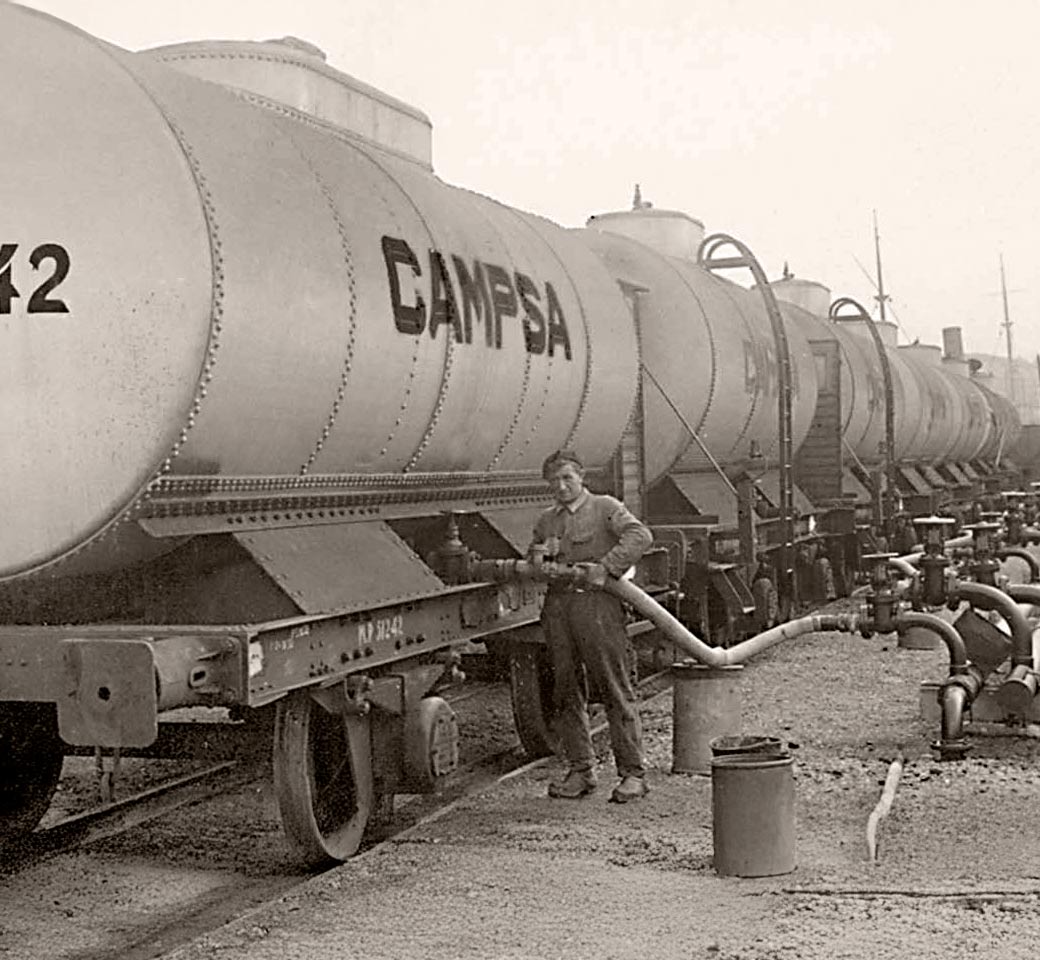
In one of the most turbulent times in Spain, Campsa (Compañía Arrendataria del Monopolio de Petróleos S.A.) was created to manage the state petroleum monopoly. Originally, Campsa was a mixed company, with the State holding only a minority stake, but it was awarded the concession in 1927. The creation of Campsa had a profound effect on Spain’s industrial growth, especially the refining industry.
While Europe was immersed in World War II, the National Institute of Industry (INI - Instituto Nacional de Industria) was established in 1941 to promote and finance Spanish industries. During this period, Campsa drilled an appraisal well in Cantabria, an early milestone for exploration in the iberian peninsula.
In 1942, control of the monopoly was transferred to the INI, and the state consolidated its stakes in hydrocarbon companies. In November of the same year, the company ENCASO (Empresa Nacional Calvo Sotelo) was established as a stock corporation and began operations in Puertollano and Levante, where it set about constructing the Cartagena refinery.
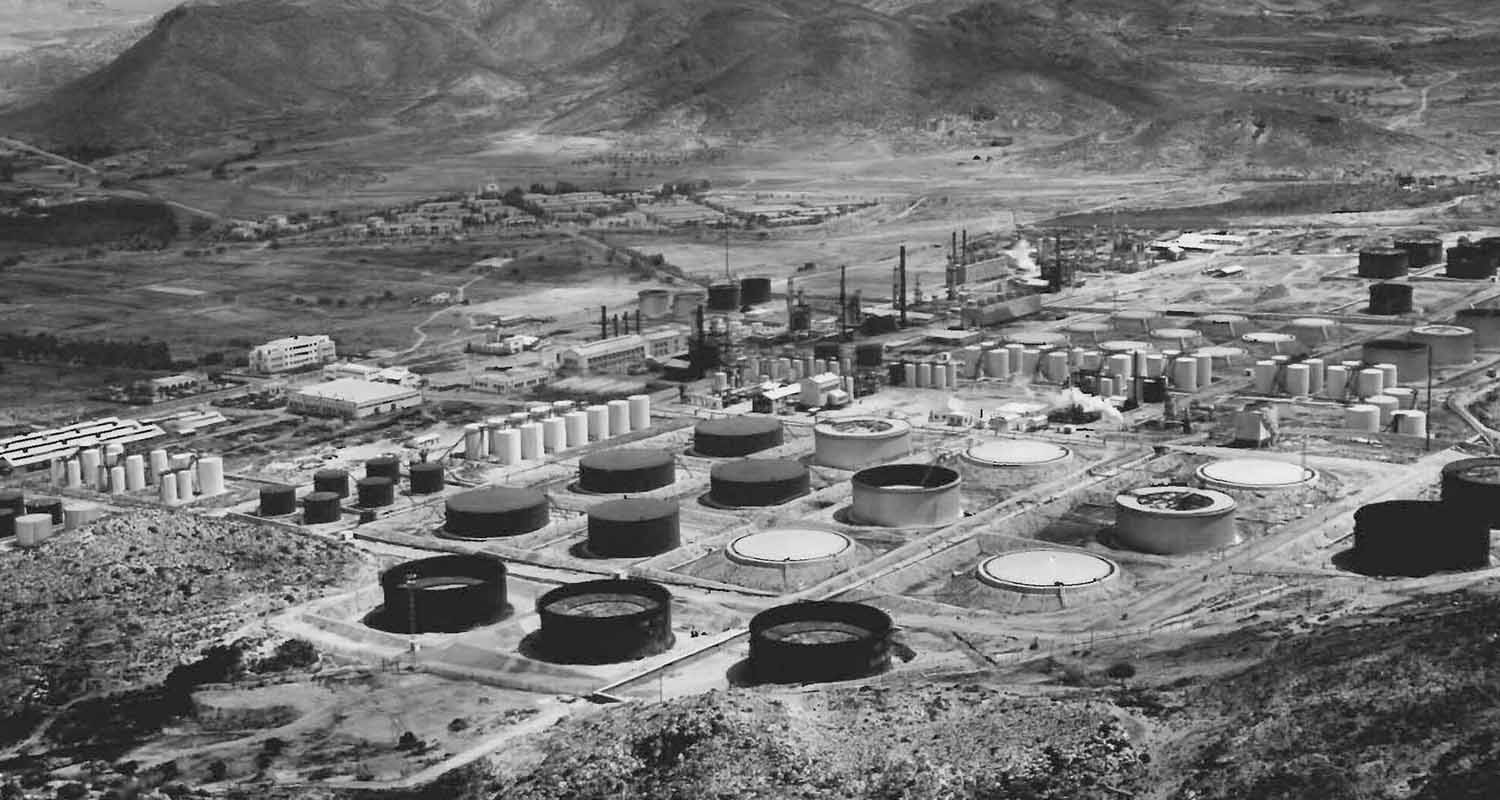
Located in Madrid, in 1944 the first Research Center was built with the aim of keeping Spain from depending on foreign suppliers and technology. During this period, the research center also worked on projects related to shale distillation and fertilizer production. Over time the company diversified its activities, making particular headway into the field of petrochemicals.
In 1947, the reorganization of the Petroleum Monopoly occurred. The new law established that the state would recover from the petroleum monopoly the ability to award concessions for nearly all hydrocarbon activities, except those related to distribution and commercialization, which remained under the exclusive control of Campsa.
REPESA (Refinería de Petróleos de Escombreras) was established in 1948. The company was established with the purpose of installing a refinery in the Escombreras Valley (Cartagena). Opened in 1951, REPESA's facilities included a lubricants and asphalts production plant, a cogeneration plant, marine facilities at the Port of Escombreras, and a research center.

1957, Butano S.A. was founded. Its aim was to provide door-to-door butane gas delivery to Spanish homes. The product stood out for its hassle-free installation, safety, and efficient performance.
In 1961, the Spanish Ministry of Industry authorized the Marathon Oil Company and Compañía Ibérica de Petróleos, S.A. (PETROLIBER) to form a stock corporation that would build and operate an oil refinery with an initial annual capacity of 1.2 million tonnes. In May 1964, CAMPSA collaborated with Chevron and Texaco to begin drilling, and on June 2, an appraisal well was found in Burgos, which reached production levels of 85 barrels/day.
Sociedad Hispánica de Petróleos S.A. (Hispanoil) was founded in 1965 with the aim of carrying out exploration and production activities beyond Spain. One year later, its first operation took place in the Sirte basin and ENCASO opened the Puertollano Refinery (Ciudad Real), the first in inland Spain.
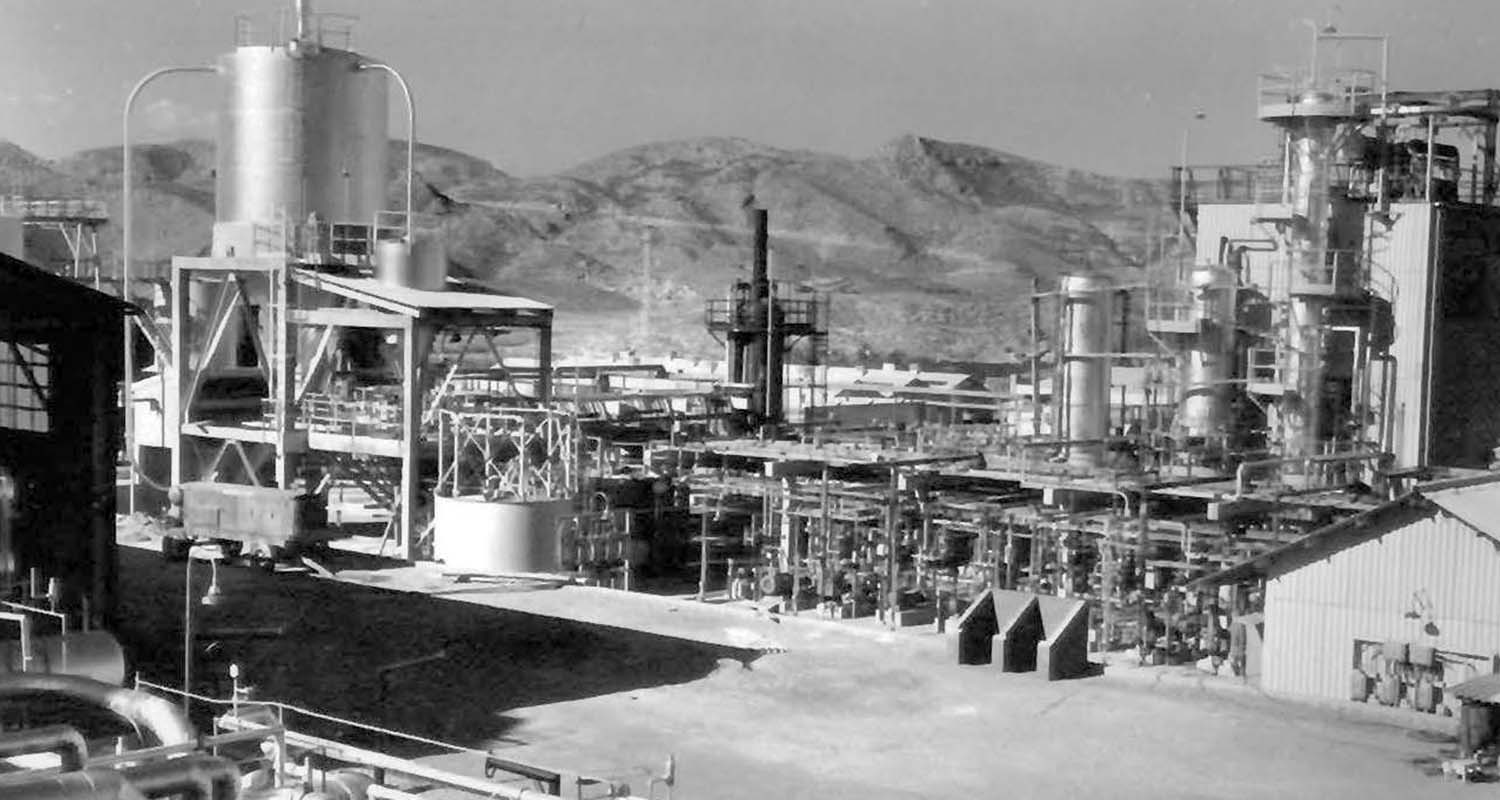
In May 1968, while large parts of Europe were rocked by the protests in France, Spain saw operations begin at the Asfaltos Españoles (ASESA) heavy crude oil refinery in Francolí (Tarragona). In September of that same year, the public tender was resolved by which Petróleos del Norte (Petronor) was awarded the installation and operation of the refinery located in Biscay. REPESA saw an ideal testing ground in the world of motorsports, and in late 1968 it laid the foundations for what would one day become the Repsol Team.
In 1971, Ángel Nieto won his first World Championship in the 125cc category and for the first time the Repsol logo, as a REPESA product brand, appeared on the fairing of the Derbi.
The National Institute of Industry (INI) was commissioned to set up ENTASA (Empresa Nacional Petróleos de Tarragona), which was officially opened in 1976.
In 1978, the existence of the Casablanca oil field on the Tarragona Coast was confirmed. It is considered the most important oil field to have been found in Spain, producing 13,500 barrels a day.
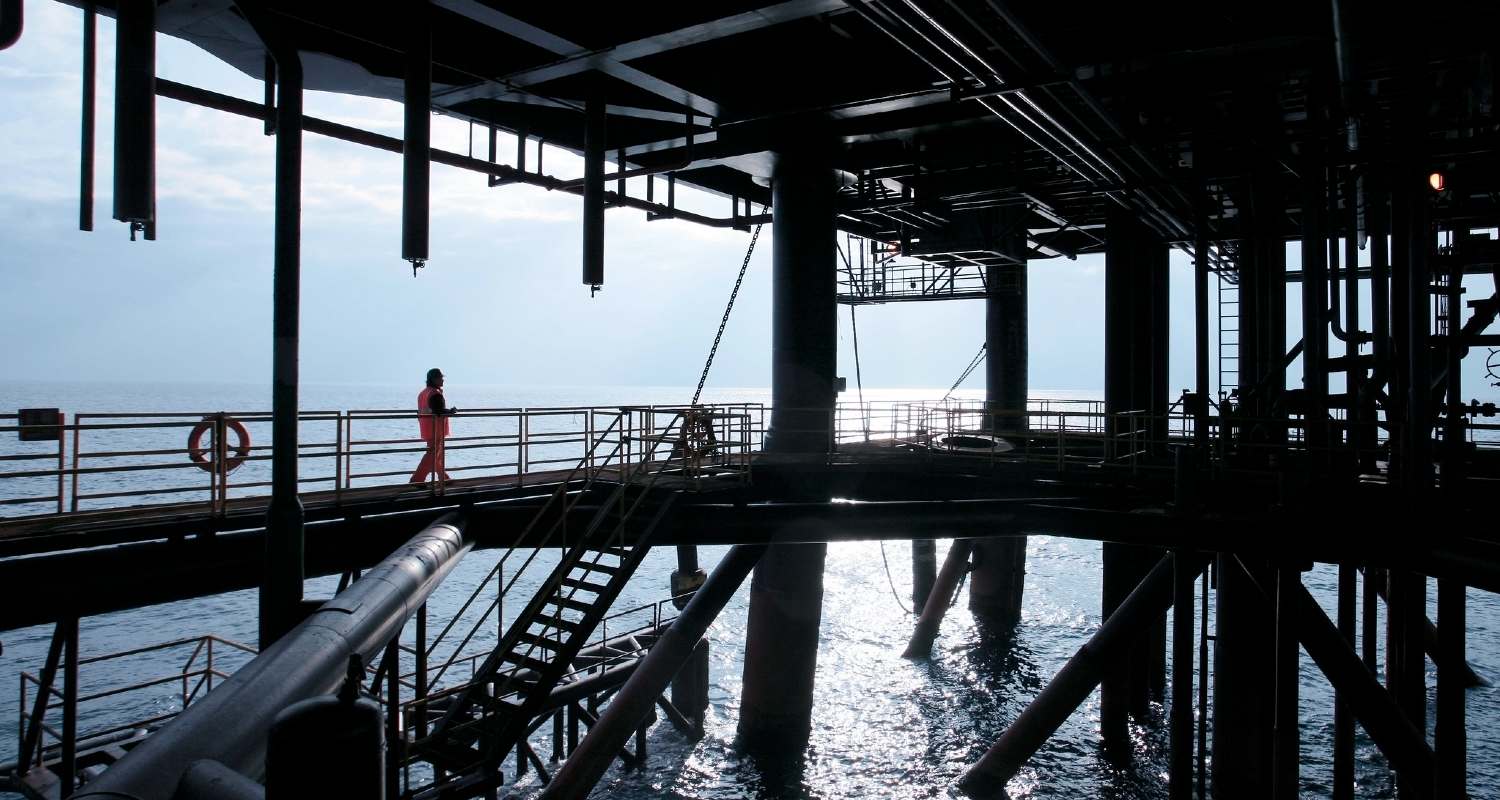
In July 1980, the production platform was installed in Casablanca and the Gaviota oil field was discovered. Two appraisal wells were also drilled in the Bay of Biscay: Vizcaya B-1 and C-1 yielding a positive result for natural gas.
In February 1981, Spain’s National Hydrocarbons Institute (INH) was created to ensure the state's energy policy is consistent and effective. Its main functions were to coordinate, in accordance with Government guidelines, business activities related to hydrocarbons in the public sector, and to strengthen the sector by channeling business initiatives.
On December 17, 1984, the 45/84 Spanish Law aimed at restructuring the oil industry led to the start of the transition from a controlled industry to one which followed the standards set by the Treaty of Accession to the European Economic Community (EEC), which would be signed by Spain the following year. The Spanish Government pledged to free up all sectors of the economy, including the hydrocarbon industry.
The early years
- 1986-1989 1986-1989
- 1990-1992 1990-1992
- 1995-1997 1995-1997
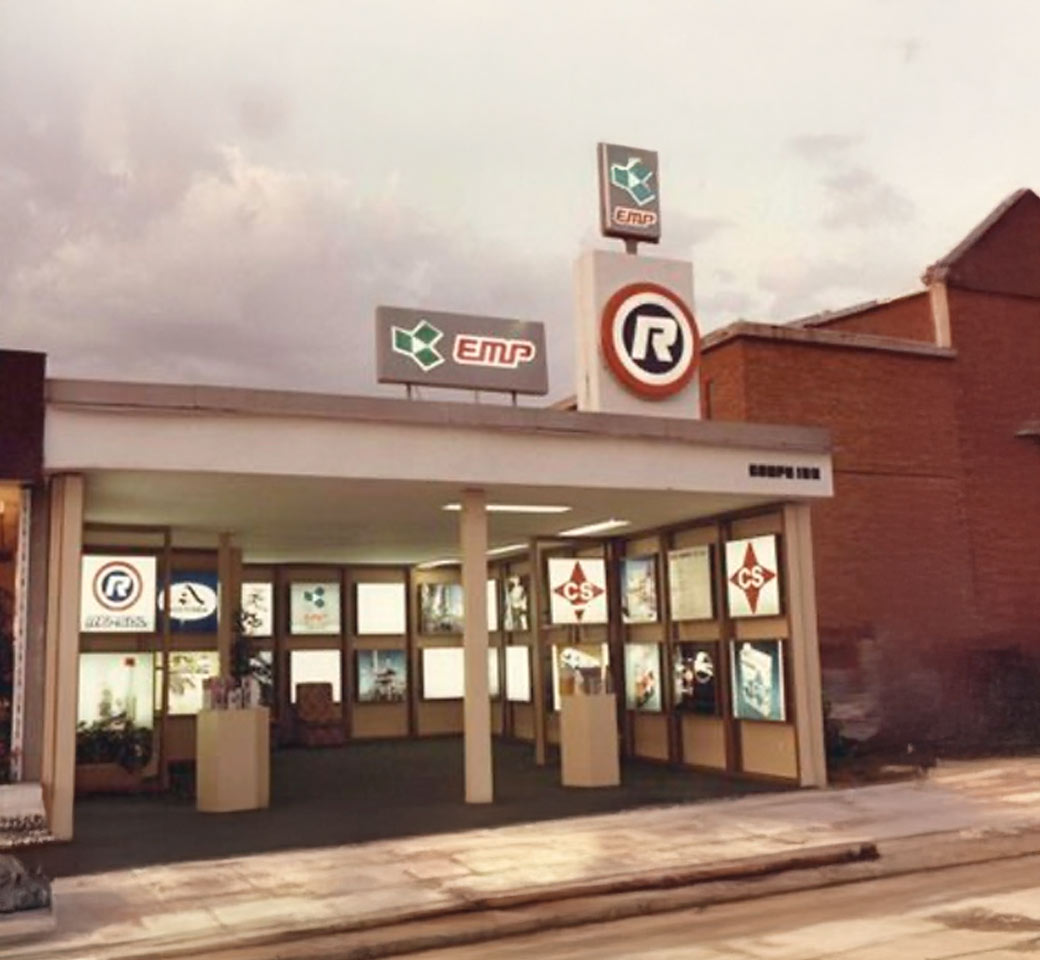
In November 1986, the National Institute of Hydrocarbons (INH) set up Repsol S.A. Our activity included the exploration, production, transport, and refining of oil and gas.
We got our name from the lubricant brand sold by REPESA as it was well-known and the name was easy to pronounce in different languages. The objective was to make it a leading brand with prestige and a global reputation.
On February 8, 1989, the first step toward privatizing the company was taken when a contract was signed between INH, Repsol, and the BBV. The contract stated that BBV would take shares in Petronor in exchange for INH shares in Repsol. Following this transaction, Repsol's share in Petronor rose to nearly 55%, and to more than 60% in Campsa.
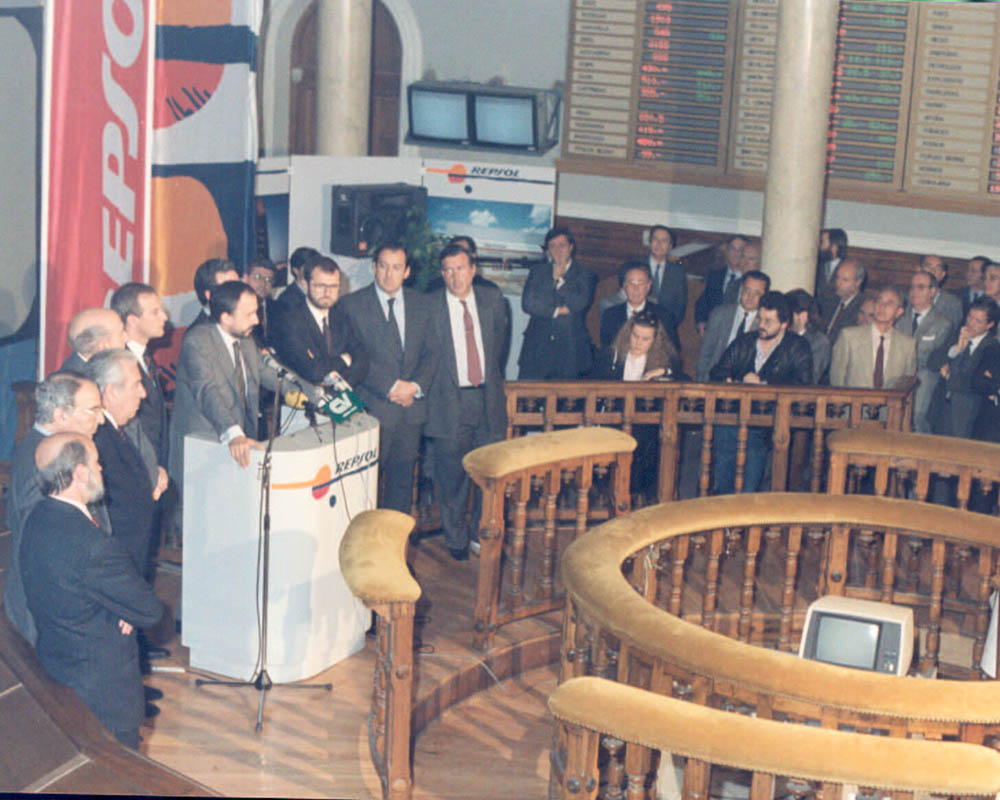
Between January 1990 and March 1992, and after a series of shares were exchanged between INH, Repsol, and the Mexican company PEMEX, the latter acquired 5% of Repsol, while Repsol acquired 88.3% of CAMPSA and 68.12% of Petronor.
In November 1992, the separation of Campsa's commercial activities was approved to distribute its commercial assets among its shareholders (Repsol, Cepsa, BP). A new oil sees the light of day: Repsol Competition, developed thanks to tests performed by company-sponsored riders.
In December 1992, an end was put to the oil monopoly. Campsa changed its company name to "Compañía Logística de Hidrocarburos" (CLH).
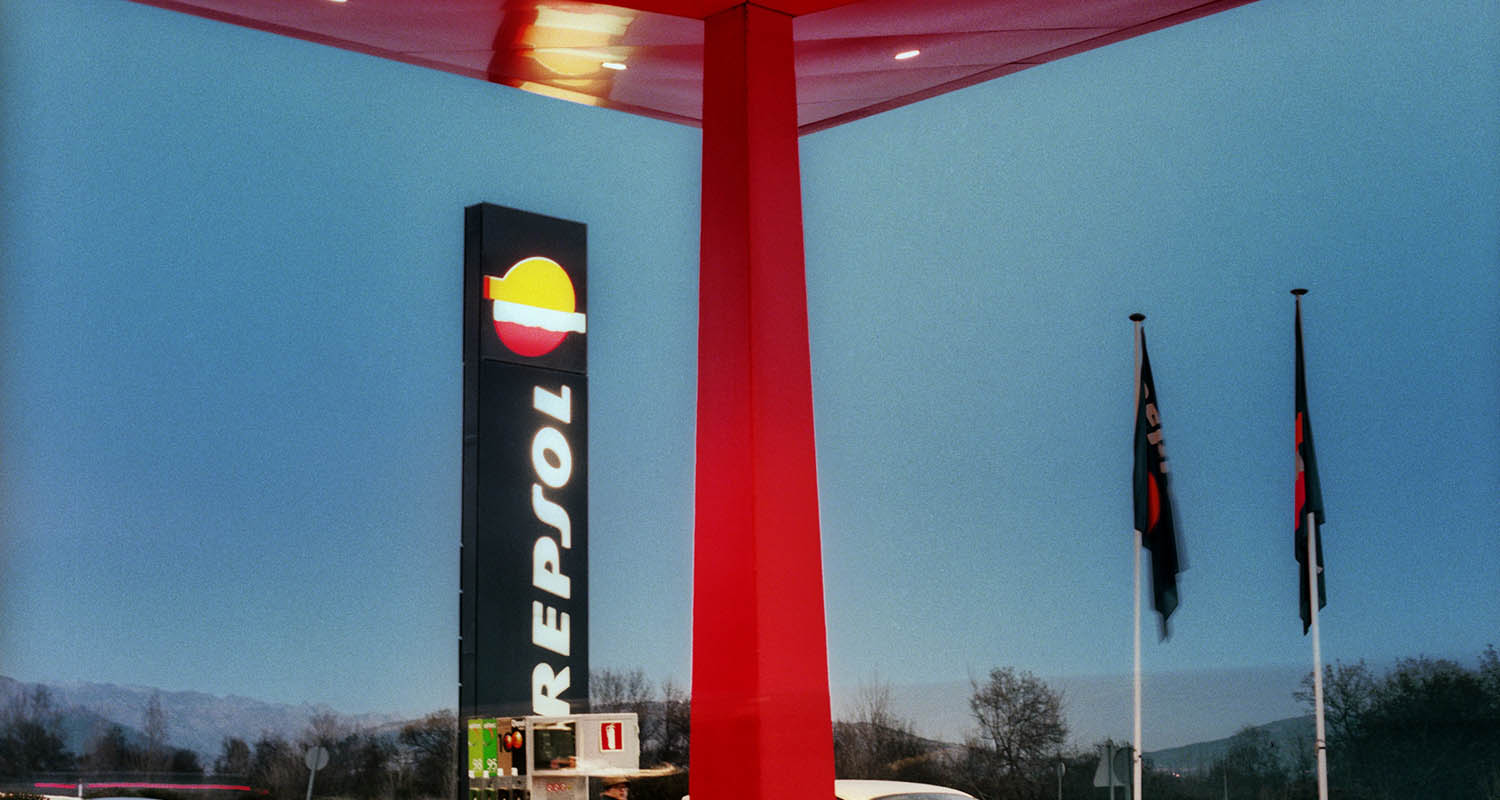
In 1995, the State Company for Industrial Investments (SEPI) was founded under the control of Spain's Ministry of Industry and Energy. All of INH's holdings in Repsol, ENAGAS, Sagane, and Gas Natural SDG were transferred to it.
In April 1997, the company's privatization process was concluded. The last of five IPOs for selling shares was set forth, which comprised 10% of the share capital (30 million shares) that still belonged to the state-owned industrial holding company (SEPI).
Expansion and internationalization
- 1999-2001 1999-2001
- 2003-2005 2003-2005
- 2002-2008 2002-2008
- 2009-2011 2009-2011
- 2012-2013 2012-2013
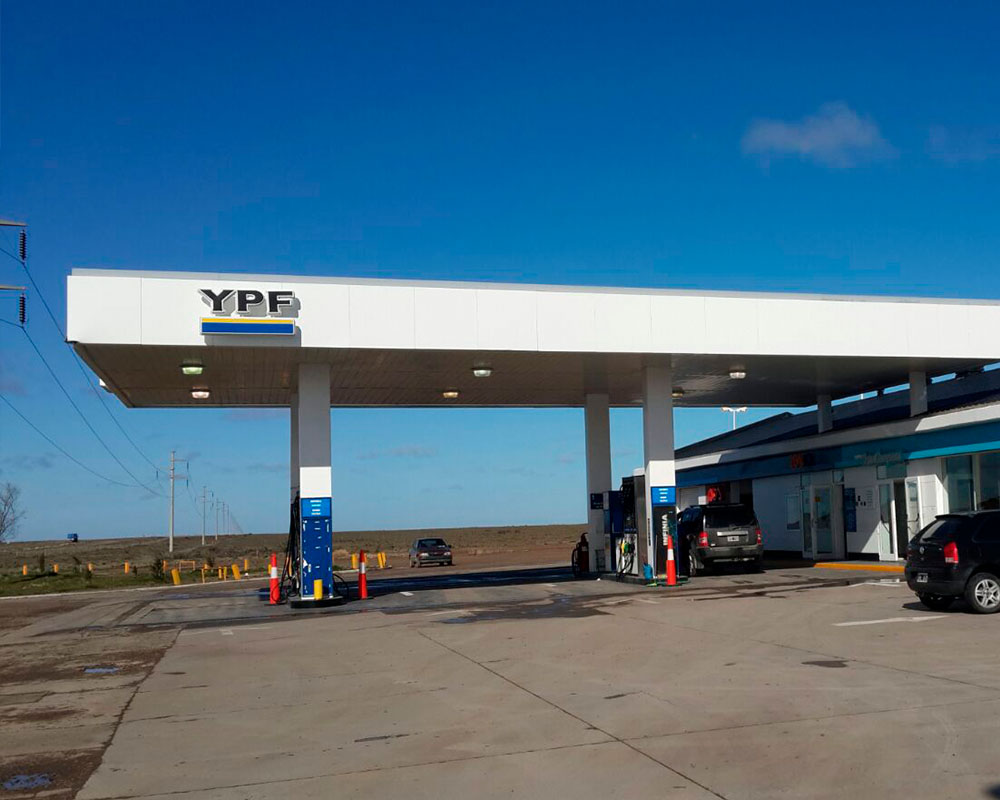
In 1999, Repsol acquired 97.81% of Argentina's YPF S.A., which resulted in a more balanced and better positioned multinational company. With the creation of the new business, we were faced with an exciting challenge: maintaining the visibility of two leading brands, Repsol and YPF, in their respective areas of activity.
In 2000, we became leaders in hydrocarbon production in Venezuela and we also received authorization from the Libyan National Oil Company (NOC) to develop block A of the Murzuq basin.
In December 2001, we closed on an exchange of assets with Petrobras in which they received 30% of the REFAP refinery and a network of 240 stations.
Alongside SAMO S.R.L, Repsol YPF Gas Bolivia was created and Gas Natural SDG consolidated. We made agreements with Cuba, Chile, Argentina, Colombia, and Venezuela during this same year, and we acquired 45% of Lipigas, leader in the Chilean LPG market, and closed agreements with BP for the purchase of assets in Trinidad and Tobago.
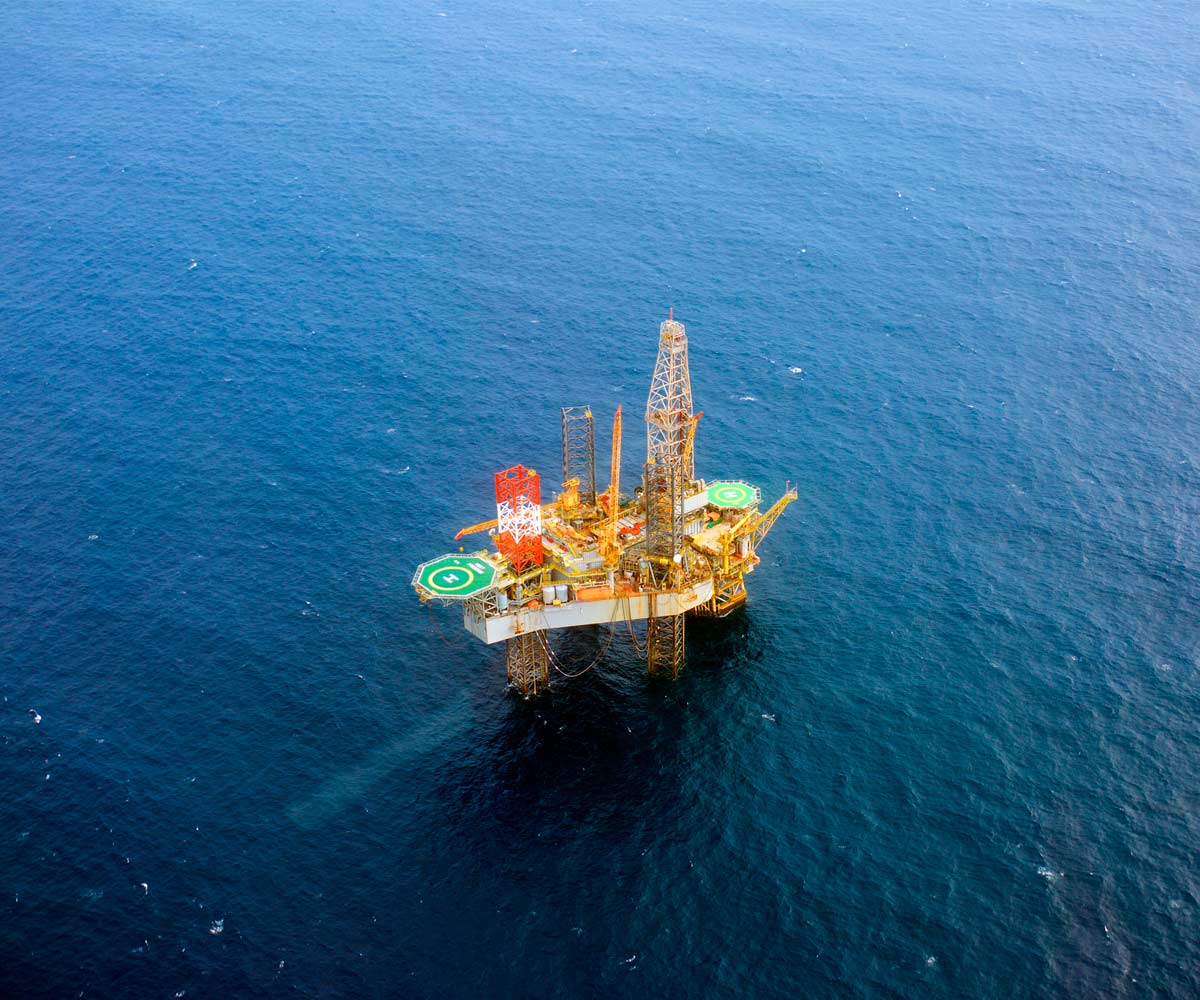
In 2003, we tripled our hydrocarbon production and reserves in Trinidad and Tobago.
That same year, we signed an agreement in principle with Gazprom to carry out joint projects in Russia. That same year, we also acquired 28% of Shenzi, one of the largest oil fields in the Gulf Coast of the United States.
In Venezuela, we elevated our stake in the Quiamare La Ceiba Block to 75%. We became the first international company to participate in the development and production of hydrocarbons in Mexico, with a contract for the Reynosa-Monterrey gas block.
In 2005, we acquired three oil fields and one gas field in Trinidad and Tobago. We formed an alliance with Gas Natural to develop new liquefied natural gas (LNG) Upstream projects and established a joint midstream venture.
That year, we were awarded 16 offshore exploration areas in Brazil, making us the second largest oil company in Brazil.
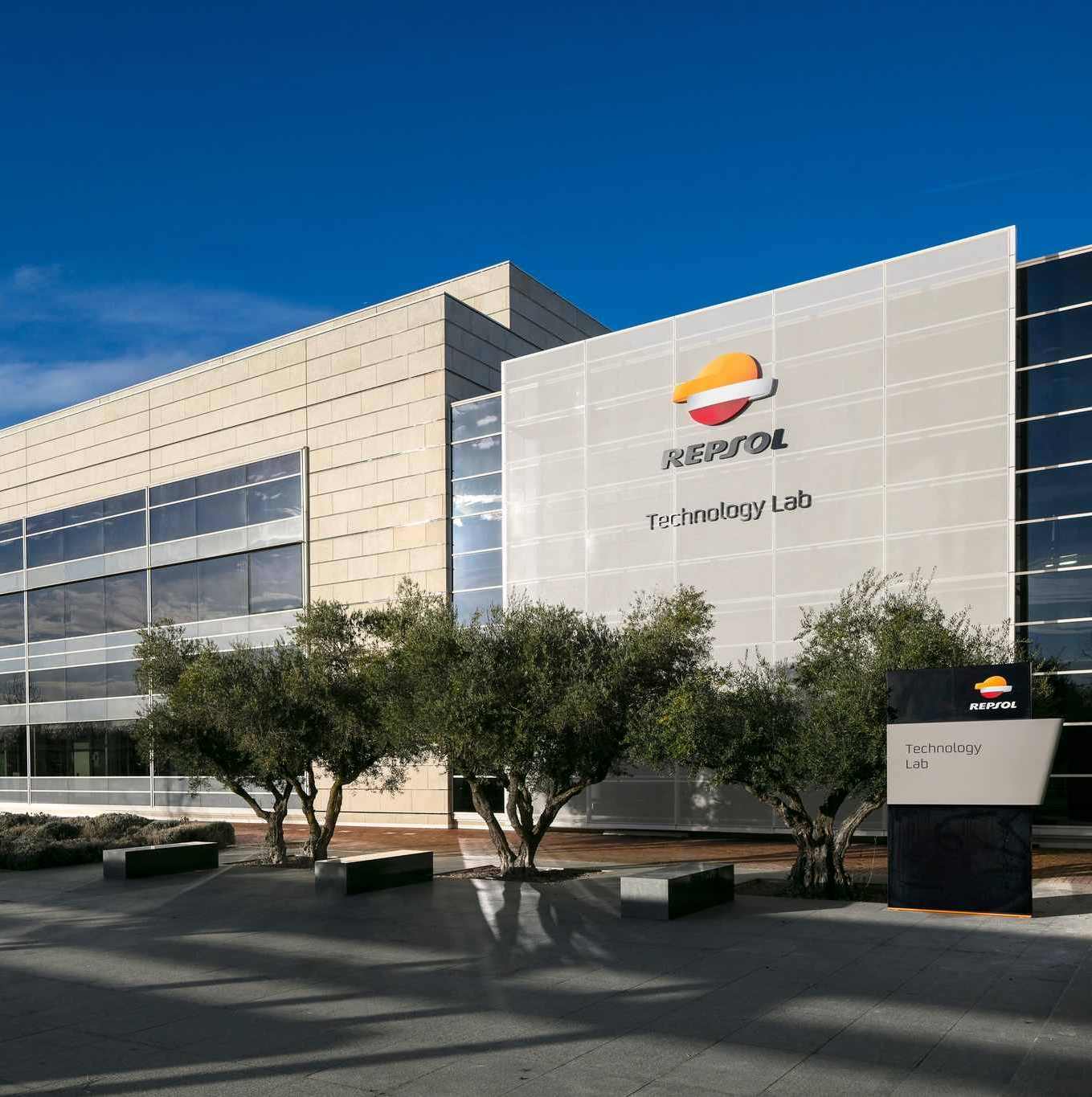
In 2002, the Repsol Technology Lab opened. This lab links all our research and development activities in Spain. There are currently highly advanced technology teams in their different areas of expertise: exploration and production, refining, gas, and chemicals. In addition, we made a commitment to minimize the impact our operations have on climate change.
The innovative and technological nature of the project for the fuel recovery from the Prestige ship won us the Platts Global Energy Award as the best Engineering Project of 2004. That year we also launched our first Carbon Plan with the aim of reducing CO2 emissions.
Using the most advanced technology, in 2008 we made over 30 hydrocarbon discoveries, some of which are the largest in the world.
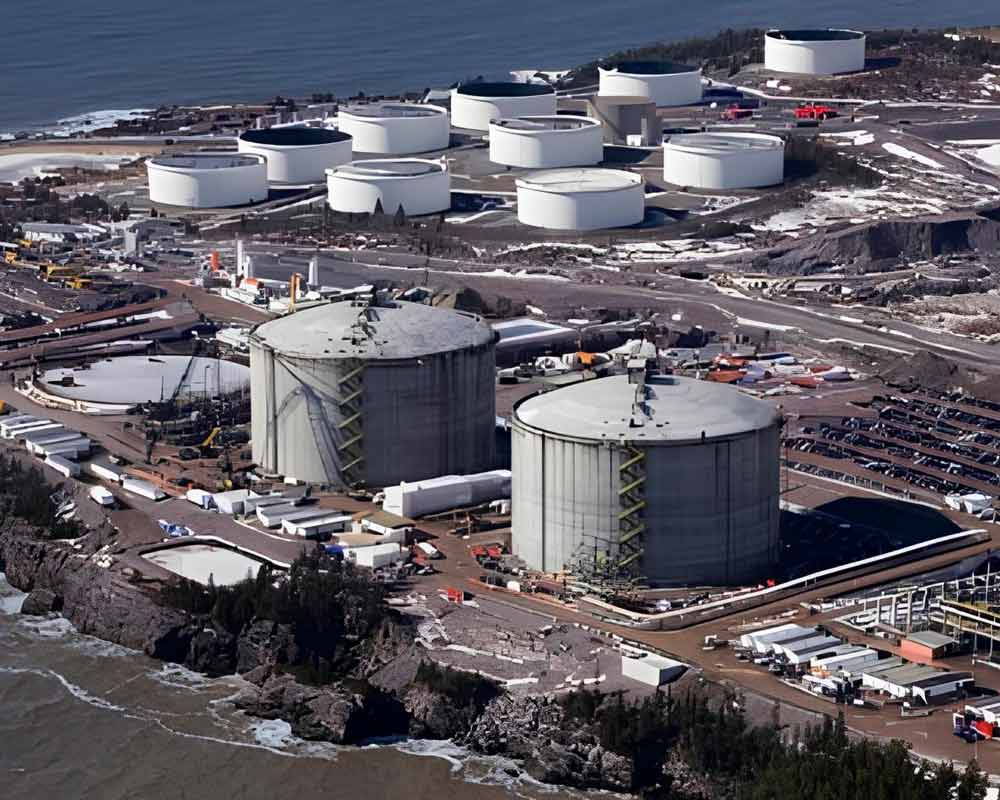
In 2009, we opened Canaport LNG, the first of its kind to be built on the East Coast of North America in 30 years, having enough capacity to supply up to 20% of New York and New England's gas demand.
In 2010, we opened the gas liquefaction plant in Pampa Melchorita. The plant is supplied with gas produced in Camisea and is designed for supplying the United States West Coast and Mexico. In December of that same year we finalized an agreement with Sinopec to carry out the Company's exploration and production projects in Brazil's offshore.
In 2011, we entered the Asian market. We produce lubricants at plants in Guangdong (China) and Kuala Lumpur (Malaysia), with four production centers in Indonesia, Japan, China, and Malaysia, selling products in 11 countries there.

In 2012, we carried out the expansion of the Cartagena industrial complex. This model of modernity and energy efficiency has been regarded as Spain’s largest investment.
The financial strength of the company and the diversification undertaken years prior have allowed us to look toward the future with a new vision, a solid growth strategy, and a new visual identity adjusted to society's demands.
Growth and value generation
- 2013-2014 2013-2014
- 2015-2018 2015-2018
- 2019-2025 2019-2025
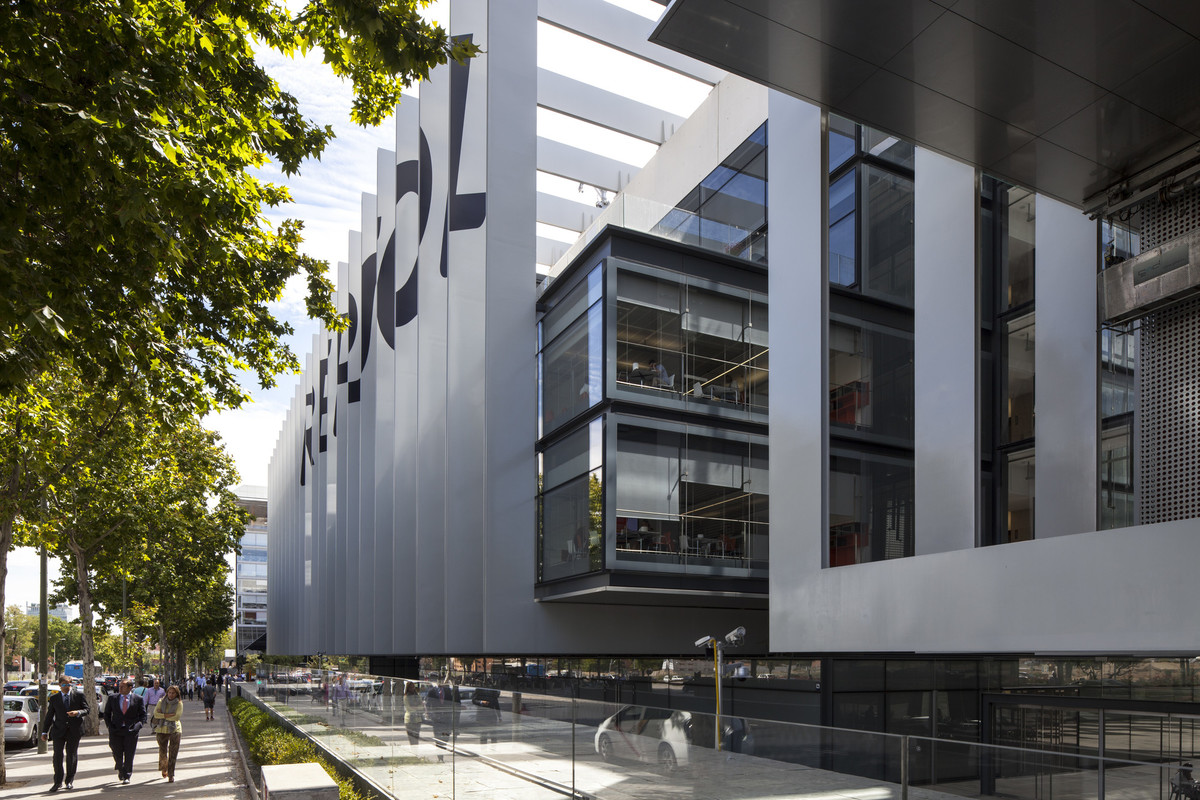
The Repsol Campus, our corporate headquarters, was opened on January 31, 2013: an architectural benchmark based on the criteria of sustainability, accessibility, and adaptability to those it was built for.
Campus represents our corporate culture, and its construction reaffirms our commitment to people. It’s a reflection of our values, a new way of working based on communication, collaboration, and transparency.
On March 28, 2014, an agreement reached with the Government of Argentina was approved at the Annual General Meeting that recognized Repsol’s right to receive five billion dollars as compensation for the expropriation of 51% of the social capital of YPF and YPF GAS and the guarantee for its actual payment. The result was the creation of value for our shareholders and the strengthening of our financial position.
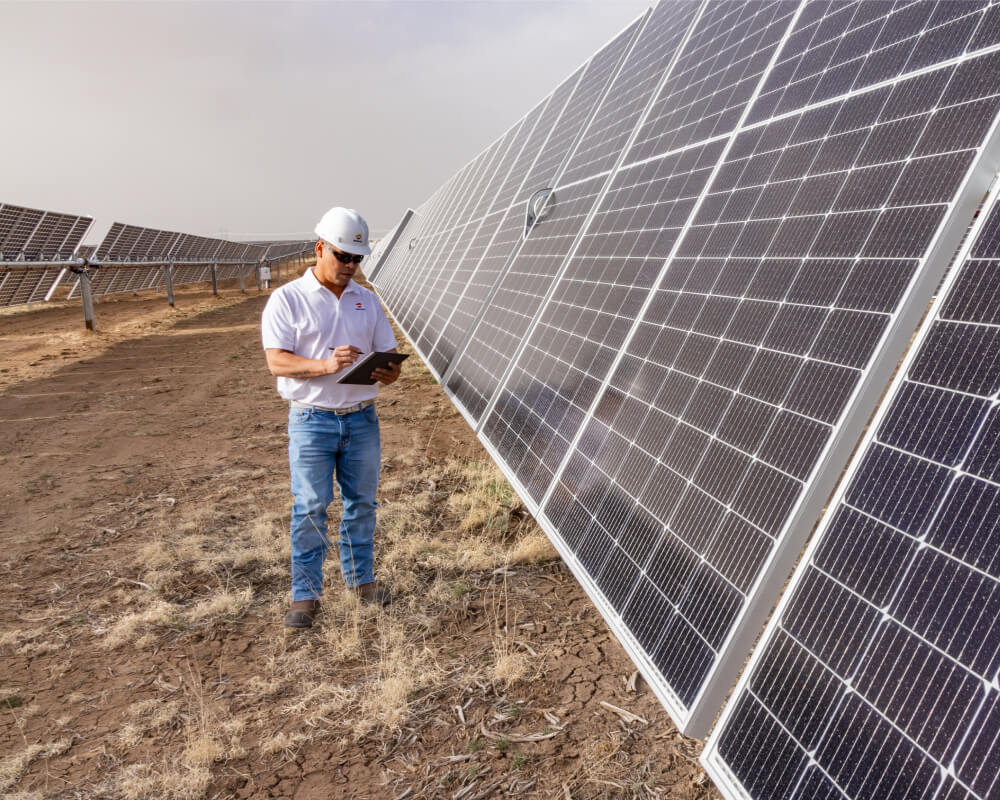
In 2015, we acquired 100% of the Canadian oil company Talisman Energy. This acquisition placed us as one of the world's largest energy companies, with operations in some 50 countries and more than 27,000 employees. We also consolidated our integrated and competitive business model, thanks to a balanced asset portfolio located in geopolitically stable regions.
In 2018, we added Viesgo low-emission assets and its retail business to our low-emissions electricity and natural gas market offer. This movement represented a step forward in our roadmap towards energy transition by operating in a low-emissions business with a profitable, long-term position.
This acquisition entails the entrance of a new operator into the gas and electricity sector: one bringing with it a long-term industrial outlook and the intention of investing and generating employment. We also bring benefits to consumers as a whole by reinforcing competition in the sector.
Furthermore, in 2017 we launched Waylet, our payment and loyalty app, which the following year expanded its reach beyond payments at our service stations, including restaurants, health, beauty, and entertainment establishments.
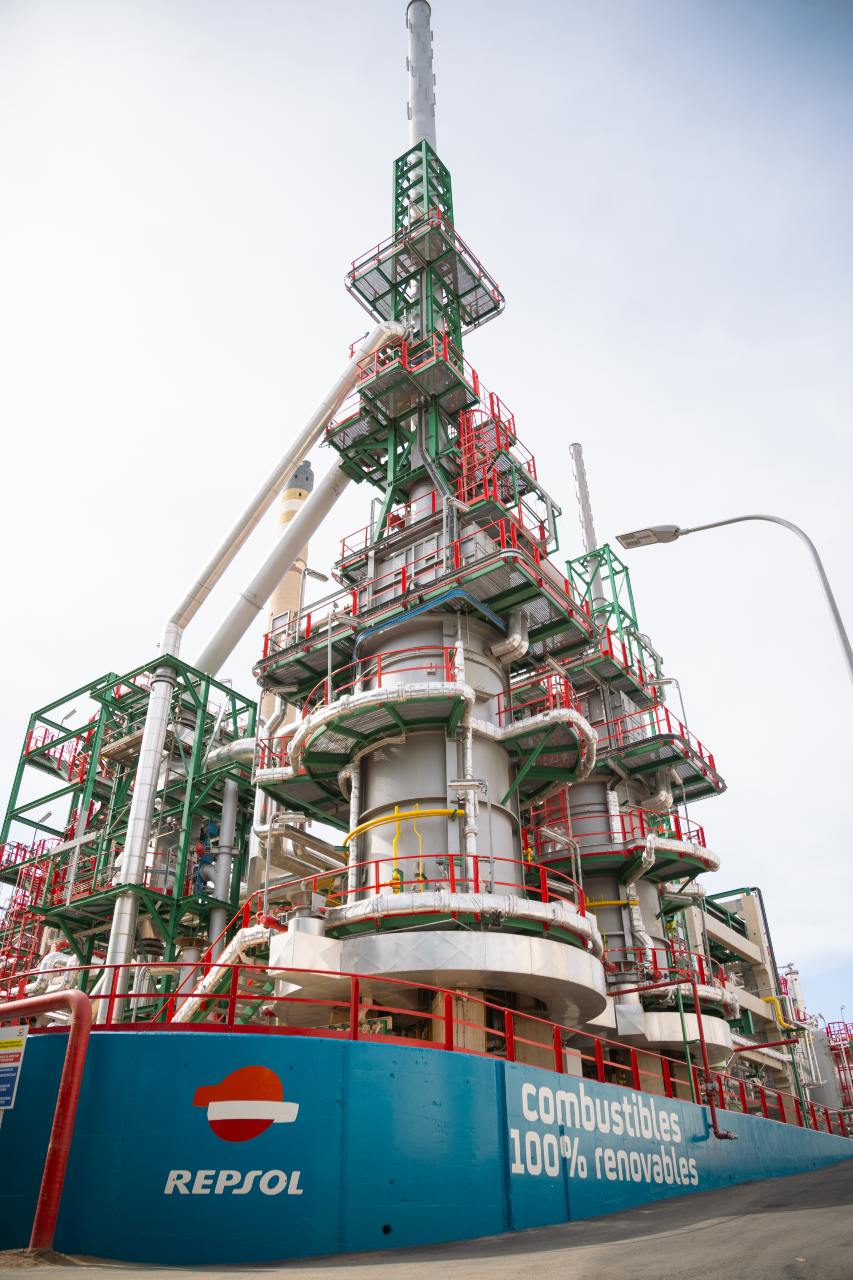
In 2019, we became the first company in the sector to set a goal of achieving net zero emissions by 2050, with a strategy based on the use of all available technologies, evolving into a company capable of supplying its customers with a variety of energy sources.
Our industrial complexes are evolving into multi-energy hubs capable of producing low-carbon products, with projects such as the Cartagena renewable fuel plant, which began production in 2024, and the future Tarragona Ecoplant, a pioneering project to generate renewable methanol.
In addition to supplying conventional fuels, our service station network is incorporating alternatives such as electric charging and, above all, renewable fuels. In 2024, Repsol launched its 100% renewable origin Nexa Diesel, the highest-end fuel on the Spanish market, which surpassed 1,000 operational service stations in April 2025.
We have established ourselves as a leading operator in the electricity and gas market on the iberian peninsula, while developing a growth strategy in renewables, with assets in Spain, the United States, and Chile.
In 2025, we continue to invest in digital solutions like Waylet, with 9 million users.